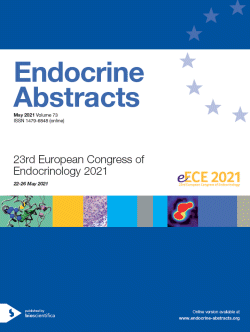Searchable abstracts of presentations at key conferences in endocrinology

European Congress of Endocrinology 2021
Online
22 May 2021 - 26 May 2021
The European Congress of Endocrinology provides a global platform for the international endocrine community to discuss the latest advances in the field.



